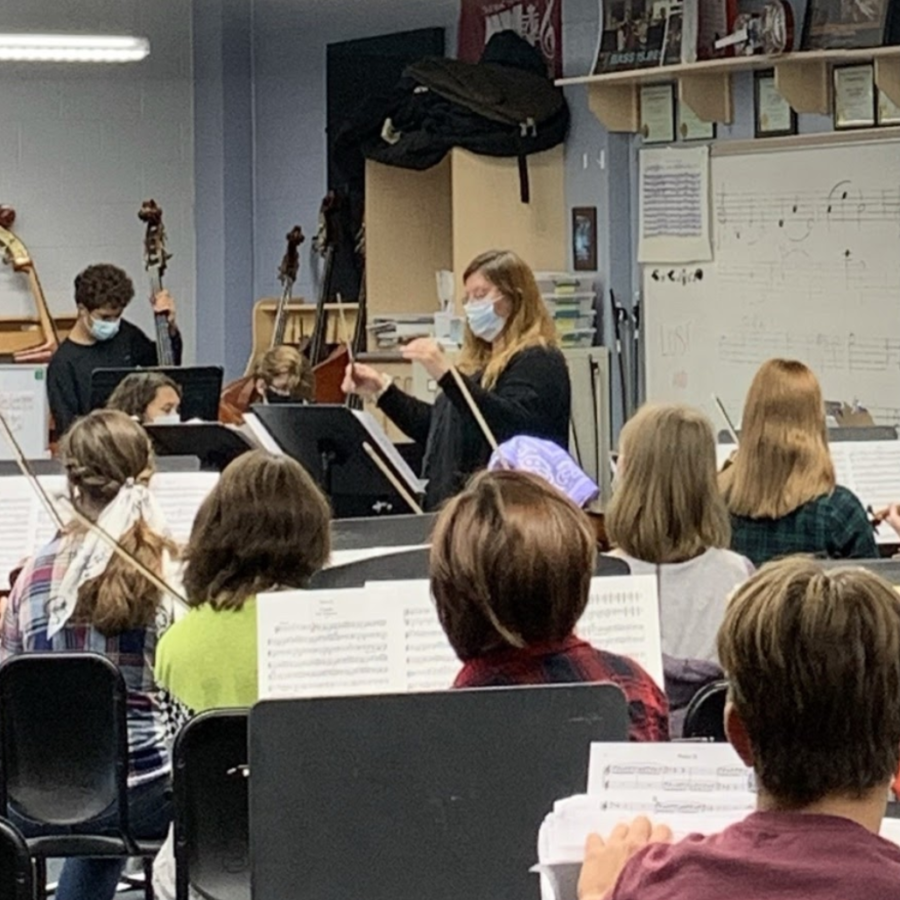The evolution of the orchestra: positive changes with new orchestra teacher
Lubitza Hershberger conducts the class while they play their instruments.
Entering the doors of the new Orchestra Teacher Lubitza Hershberger’s class, rising in our seats to practice our songs. Opening our music books, reading the music note for note. Standing next to my peers looking at each book making sure everyone is ready to reach the notes as Hershberger plays the piano.
The Highlands High School orchestra adjusted to many new things this upcoming year. Along with new changes due to COVID-19, they also had to adjust to the changes of a new orchestra teacher. Having to adapt to things such as wearing your mask and staying six feet apart, learning can be difficult for many students and staff.
The HHS orchestra class has had to make these adjustments. Although there have been many changes and battles to overcome, along with Hershberger joining, things have gotten better. The students were able to adjust and can make her teaching experience better.
According to orchestra student Senior Noah Huber, Hershberger has welcomed the students.
“I’m really glad that she welcomed us all with open arms. This year I know we’re going to have a different pace in [the] orchestra and I’m really excited about these new changes.”
Hershberger is equally excited for teaching the orchestra as well saying, “I am frankly thrilled to coach and mentor these special students at HHS. Many of them are probably as hard-working and attentive as they are talented. And each of the rest has potentials vast as they are unknown.”
Going on to saying that she is excited to accomplish goals with her new team saying, ”would help each scholar-musician develop solid taste/discernment/habits – practicing-as-performing and keen preparation, as well as becoming attuned listeners and strong/confident [but always-responsive] performers. I would “encourage them to be genuine and healthily respectful to all from ensemble-mates to composers to audience participants – and soundly open to truly fine music, across time and genre.”
Your donation will support the student journalists of Highlands High School. Your contribution will allow us to cover our annual website hosting costs.



